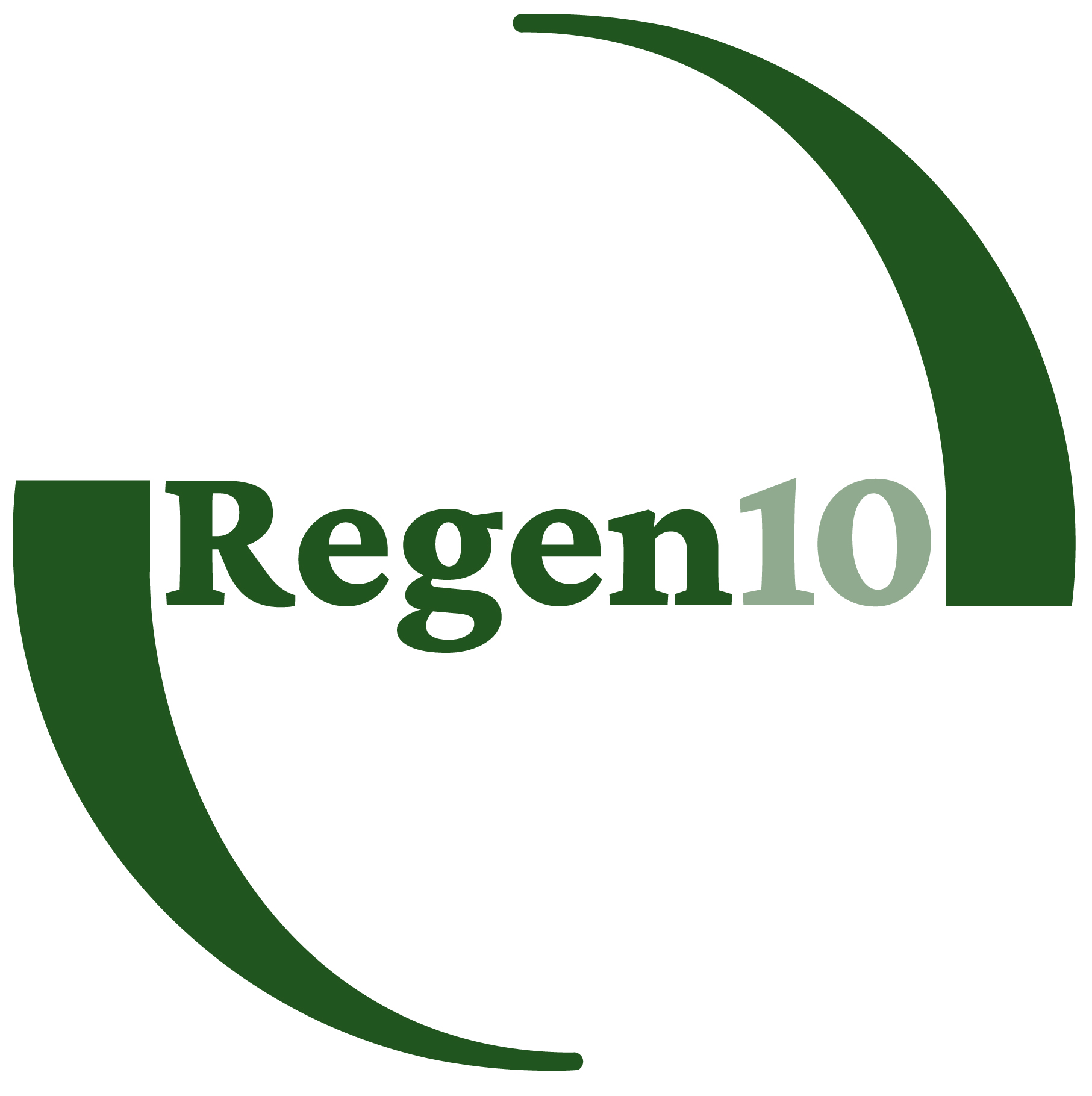Regen10 Story
Introduction
Imagine a future of food production driven by the people who work the land. A system where policy and business agendas are informed by the experiences of farmers and other landscape stewards, and by the evidence of the changes to the land that they see and can track and measure.
A policy, finance and business environment formed this way will incentivize and empower farmers and other landscape leaders as they progress on the journey. It will be a new way of advancing towards regenerative food systems, prioritizing inclusion and equity, lives, and livelihoods, while protecting and restoring nature.
Regeneration is happening and has been happening in places for thousands of years. If done in the right way, the transition at a global scale will help combat climate change, protect nature, and advance more equitable food systems. But the journey is complex.
How do we achieve truly regenerative global food systems?
Regen10 was established to answer this question.
Our Principles
As we respond to this important challenge, we will be guided by our 10 principles, which hold farmer-centricity, equity and inclusion at their core.
Our Approach
We believe that the most effective way to scale regenerative food systems is to build the evidence and create a shared understanding of how to deliver positive outcomes in different contexts.
To do that, Regen10 aims to provide tools and guidance, and to connect practitioners and leaders across a diverse range of landscapes.
First, it’s critical to have a clear method by which to measure progress and judge whether the transformation we need is on track. There are already multiple frameworks in use across different agricultural sectors, many that prioritize environmental and/or economic metrics – leaving out critical socioeconomic factors – and focus on practices rather than outcomes. Many don’t prioritize primary data.
To address these gaps, Regen10 is developing an outcomes-based framework to complement existing approaches that is holistic, agnostic of practices, and designed with farmers for use by farmers. This framework aims to be developed in a deeply inclusive way, through a dialogue process that ensures the voices and needs of farmers and land stewards, including Indigenous Peoples, are integrated.
The framework will be useful to farmers and land stewards because it will enable the collection of primary data at farm and landscape level. With this data, farmers will better understand the impacts of different agricultural practices across a holistic group of outcomes. This data and evidence will allow farmers to be rewarded for people and climate-positive outcomes, thus accelerating a transition to more regenerative practices.
Regen10’s work aims to support other frameworks as they evolve, without duplicating those efforts, and to be focused on the outcomes necessary for a regenerative food system.
At COP28 we will be sharing a zero draft of this Framework. The work follows analysis of more than 150 existing frameworks, and has been developed in consultation with a diverse group of landscape actors. But these consultations have only just begun. What we are publishing is the starting point for a comprehensive series of consultations with farmers, dialogues with Indigenous Peoples, and testing throughout the next 12 months. The goal is to publish our “Outcomes Framework” before the end of 2024.
It is critical that Regen10’s work is not merely a theoretical exercise: for it to be successful, we need to understand the experiences of farmers and landscape stewards, and to consider the costs, trade-offs and returns associated with embarking on this regenerative transition.
We have already engaged with diverse landscapes across the world, and at COP28, we will be publishing – in partnership with 1000 Landscapes for 1 Billion people – the initial findings of this research in a “Landscapes Discussion Brief.” Alongside this will be an early analysis of the costs involved, based on studies of an illustrative set of landscapes which have embarked on the journey from conventional to regenerative agriculture. In early 2024 we will publish a full “Cost of Transition” report.
To help develop our understanding of the status of the global transition, Regen10 is mapping many of the landscapes across the world that are already exploring regeneration. This is a continuing project, and we will publish an early version of the digital map on our website during COP28.
Back to the future
When we look back two decades from now, how will we judge the success of Regen10? The answer lies in the extent to which we have produced the evidence for a distinctive new approach, built on the experience and expertise of farmers and landscape stewards across the world.
In turn we want to see this evidence paving the way for policies and financial mechanisms that incentivize and empower those farmers and landscape stewards as they progress along the transition.
Ultimately, Regen10 and our partners will use our networks and experience to develop tools and share knowledge that will help restore balance to ecosystems, boost sustainability in agriculture, and bring about more inclusive and equitable global food systems – in other words, deep regeneration.
